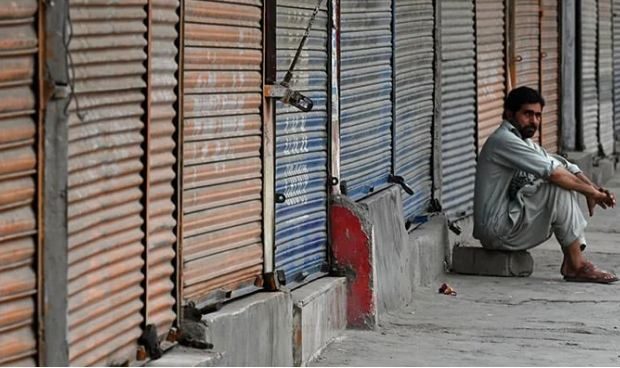Karachi’s response equally impactful, with both large and small markets shutting down. Traders in Sher Shah and Mominabad protested against the economic pressures of inflation and high electricity costs

ISLAMABAD: Top of FormBottom of Form: On Wednesday, the nationwide strike organized by the Traders’ Association in Rawalpindi emerged as a significant demonstration of economic discontent across Pakistan. The strike, which protested against high taxes, soaring electricity bills, and rampant inflation, saw a substantial response, with most markets, shops, and bazaars in Rawalpindi remaining completely closed.
The epicenter of the protest was a peaceful rally held by traders at Chandni Chowk on Murree Road, a focal point for the strike. Prominent markets and commercial hubs, including Raja Bazaar, China Market, College Road, Bird Market, Nirankari Bazaar, Wheat Market, Ganjmandi, Vegetable Market, City Saddar Road, Imperial Market, Bara Market, Chandni, Dhoke Hassu Fruit and Vegetable Market, Commercial Market, Mobile Market, Main Saddar Bazaar Cantt, Murree Road, Electronics Market, Food Street, Shoes Market, and Medicine Market, observed a complete shutdown.
In Islamabad, the impact of the strike was also notable, with business centers in areas such as Aabpara, G-9 Karachi Company, and other localities participating in the shutter-down strike. The traders in the capital city voiced their concerns over increased taxes on trader schemes and exorbitant electricity bills. They demanded the government retract the trader-unfriendly tax scheme and warned of further protests if their demands were not addressed.
Lahore followed suit, with a majority of its markets closing in protest against high taxes and inflation. Karachi’s response was equally impactful, with both large and small markets shutting down. Traders in Sher Shah and Mominabad took to the streets, protesting against the economic pressures of inflation and high electricity costs, blocking roads, and setting tires ablaze in some instances. The Pakistan Oil Tanker Owners Association, led by Chairman Mir Shams, lent full support to the nationwide strike, underscoring the widespread discontent over excessive taxes and harsh electricity bills affecting all Pakistanis.
In Sindh, business centers in Badin, Golarchi, Tando Bago, Matli, and Talar observed closures. Balochistan’s capital, Quetta, saw a comprehensive shutdown of major and minor markets. The President of the Traders’ Association articulated that the strike was a reaction against exorbitant taxes, contrasting Pakistan’s taxation burden with that of other countries and highlighting that excessive taxation is driving many traders to consider leaving the country. Khyber Pakhtunkhwa also experienced significant disruption, with business centers in Peshawar and other districts closing their doors. The strike extended across Malakand and Hazara divisions, with traders expressing their dissatisfaction over high taxes and rising electricity bills.
#NationwideStrike, #EconomicDiscontent, #HighTaxes, #ElectricityBills, #InflationProtests, #RawalpindiStrike, #KarachiShutdown, #LahoreProtests, #TradersAssociation, #SindhClosures, #BalochistanShutdown, #KPDisruption, #BusinessCentersClosed, #PakistanProtests



